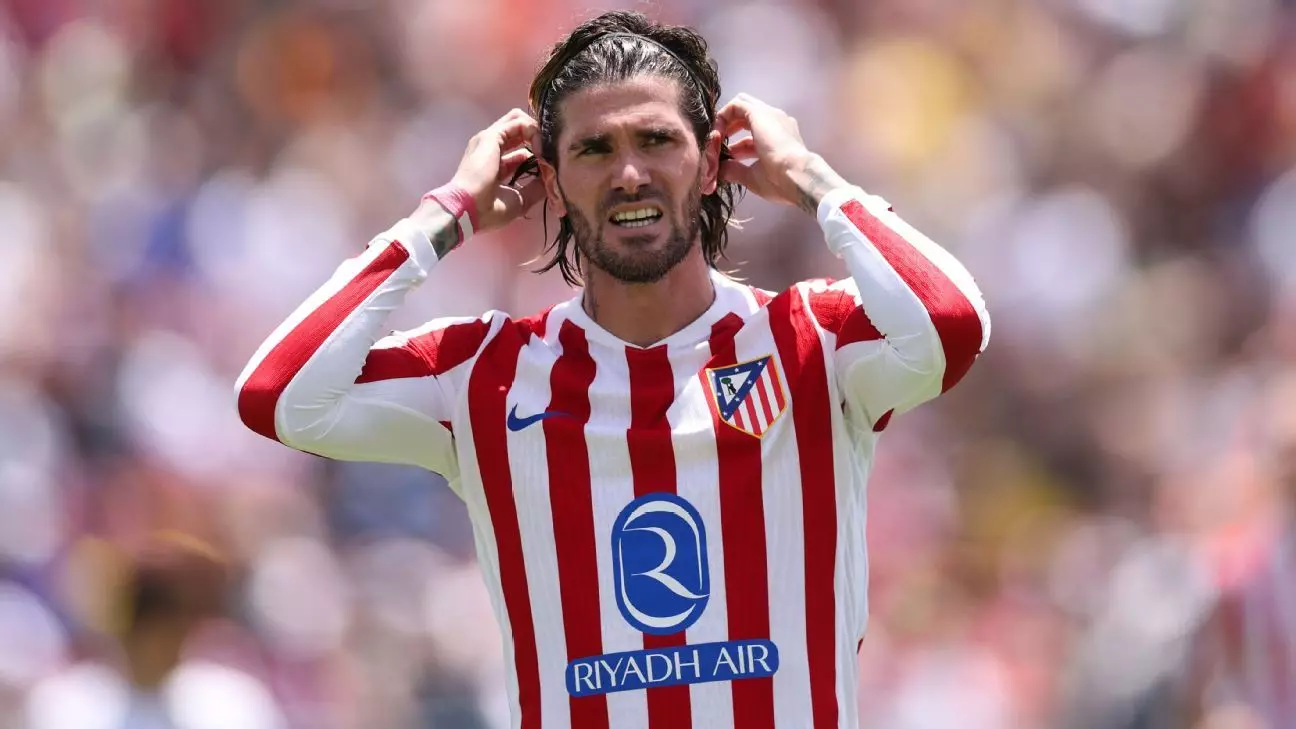Inter Miami is making a daring move by bringing in Rodrigo De Paul from Atlético Madrid, signaling their unwavering commitment to transforming the club into a competitive force in Major League Soccer. This transfer isn’t just about bolstering the squad; it’s a calculated step toward establishing a roster capable of competing at an international level. De Paul, renowned for his creativity, vision, and work ethic, can serve as a catalyst for the growth the club envisions. His arrival underscores Miami’s ambition to attract top-tier talent and redefine their status within both domestic and global football scenes.
What makes this transfer particularly noteworthy is the strategic nature of the loan-to-permanent plan. It allows the franchise to assess De Paul’s impact on the pitch without immediate long-term financial commitments, providing room for flexibility. Such a move highlights the club’s long-term vision—focusing on quality acquisitions that can elevate the team while financially safeguarding their future. It’s a clear message that Inter Miami is serious about competing with the best, even if it means taking calculated risks early on.
Understanding the Broader Impact on Inter Miami’s Future
This signing is more than just adding a talented midfielder; it reflects a broader strategy to reshape the club’s identity. The club’s involvement in international competitions like the Club World Cup indicates their desire to gain credibility on the global stage. Despite setbacks, including a recent exit against Paris Saint-Germain, Miami’s participation signifies a willingness to test themselves against the best and learn from those experiences. Bringing in De Paul creates a bridge between their current ambitions and future ambitions, as he has proven himself in top European leagues and at the World Cup.
It’s also noteworthy that De Paul won the 2022 World Cup with Argentina, a testament to his ability to perform under pressure—a trait Miami desperately needs as they seek to grow their reputation. His past performances, along with his €35 million move to Atlético Madrid, demonstrate his high value and potential to influence Miami’s style of play significantly. The club’s management clearly recognizes the importance of injecting experience and winning mentality into their squad to accelerate their development.
Potential Limitations and the Road Ahead
While the signing is exciting, it’s not without its challenges. De Paul will initially not occupy a Designated Player spot, which limits immediate flexibility for Miami when managing their salary cap. This indicates that the club’s strategy involves assessing the current roster and future needs carefully before making further investments. The ongoing negotiations regarding Lionel Messi’s future and Sergio Busquets’ contract extensions suggest that Miami is forging a carefully balanced squad, not simply stacking talent but creating a cohesive, winning team.
Furthermore, the signing of De Paul will require him to settle quickly into a new league and culture, which can be unpredictable. Success hinges not just on his individual talent but also on how well the team adapts to his style and how effectively the club integrates him into their tactical plans. Miami’s front office must ensure that this isn’t merely a marquee signing, but the beginning of a period of sustained growth and improvement.
Ultimately, the arrival of Rodrigo De Paul signifies Miami’s commitment to ambitious growth, blending high-profile talent with strategic foresight. The club is setting a foundation that could redefine MLS paradigms—transforming it from a league often overshadowed by European dominance into a fertile ground for world-class football. How well they capitalize on this opportunity will determine their trajectory in the coming years.

Leave a Reply